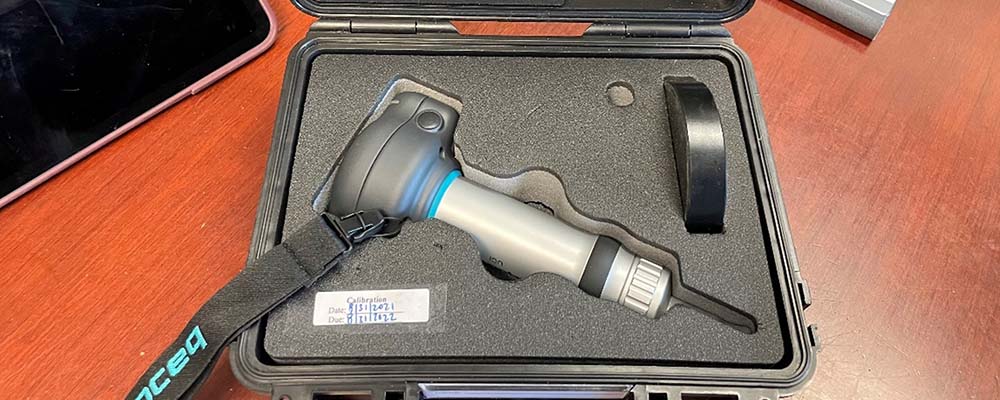Until very recently, while we could answer that question about material hardness in the lab, we could not answer it in the field. Now, with the recent acquisition of a Proceq Equotip UCI Live portable hardness tester, we can evaluate material hardness in the field.
One recent application of this field-testing technology was to a building that had been damaged by fire. There was a question as to whether the steel bar joists supporting the roof of the 1-story building had been affected by the heat of the fire. Visual examination showed no bowing or other distortion of the joists, but to answer the question definitively, we employed the hardness tester.
Working from a lift, our structural engineer prepared the bottom surface of the bar joists with sanding wheels and conducted the hardness testing. We tested the joists in the area directly above the fire, and at areas away from the fire. The expectation was that if the steel had been heated sufficiently to modify the steel properties, there would be a marked difference in the hardness measured at the two locations. The heat-affected steel would be expected to exhibit a lower hardness, indicating a concomitant decrease in the ultimate tensile strength of the material, and thus a decrease in the yield strength.
The difference in the hardness between the fire-affected area and away from the fire was minimal, leading us to conclude that there had not been any change in the steel properties. This meant the bar joists did not have to be replaced as part of the repairs to the building.

The Equotip UCI Live connects with a mobile phone app and transmits the measured hardness as well as the location, date, and time of the measurements.
